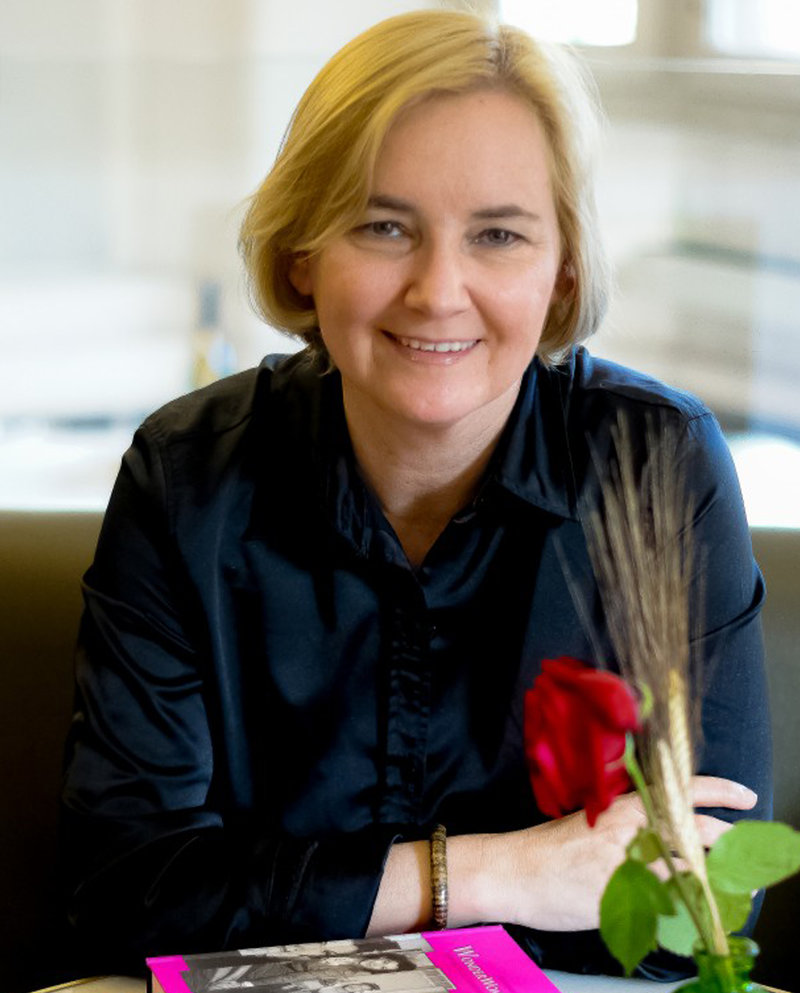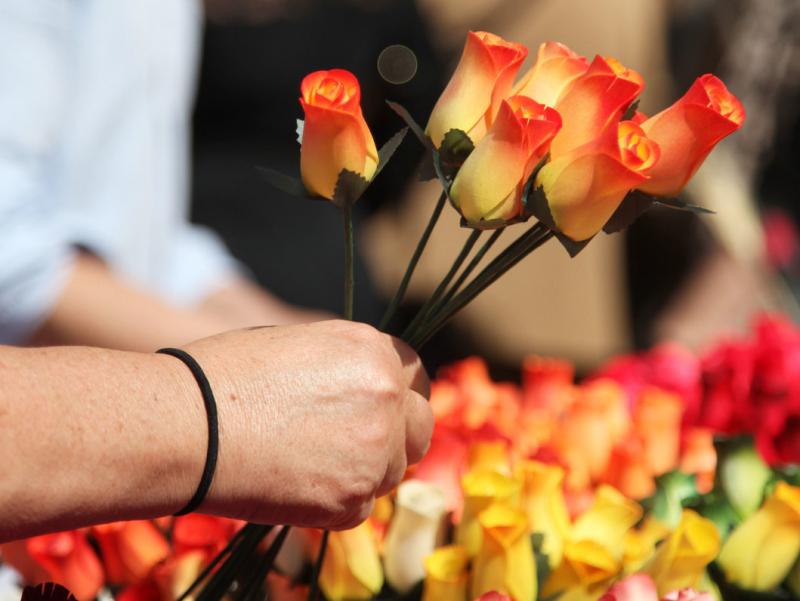Books
Àngels Cabré
Head of the Cultural Observatory of Gender and writer
“It’s harder for women writers”
Some six years ago, the writer Àngels Cabré decided it was time to set up the Cultural Observatory of Gender in order to condemn “the invisibility” and “under-representation” of women in the arts sector
1 2 3 4) 1 2 3 4
1 2 3 4) 1 2 3 4
Virginia Woolf wondered how much more difficult life would have been for an imagined sister of Shakespeare born with his gifts. Would it be easier today?
I always explain the story of Shakespeare’s sister, A Room of One’s Own, because it’s significant. All societies pose different difficulties for women (access to education, to culture...). After Woolf, women writers began to construct a genealogy that later our writers – M. Aurèlia Capmany, Montserrat Roig, Maria Mercè Marçal – helped establish. Obviously things are easier now, because we have education, but we continue to be under-represented. Compared with other cultural sectors, literature is where women are most represented. Yet, that’s deceptive, because we did a study that showed women only win 18% of literary prizes. That means it’s much harder for women to establish themselves as writers.
Why is it that women only win such a low percentage of literary prizes?
A great many panels are dominated by men, because there’s still a lingering belief that books by men are more interesting, and because a male homosociability exists that means many men reserve their support for male friends, which means there’s a lot of handing prizes back and forth. The same thing happens with publishers. Apart from the recent feminist trend, which means books are coming out that no one would have published five years ago, publishers mostly still publish books written by men. We found prizes that no woman had ever won. It seems as if things are more equal, but in reality it is not the case.
Only 20% of books published are by women, but the statistics also say that women read more than men.
Yes, this is where there is a contradiction. It’s a national disgrace. Not only do they hinder us from being producers, but even knowing we’re the major consumers, they don’t respect that majority. They’re failing to connect with the public because they provide products that do not directly interest that audience. That’s how we find ourselves with a series of women reading a series of men whose way of doing things is outmoded, and at the same time we’re missing out on translations and things produced here that are interesting and have to be published by small publishers on the back of a lot of unpaid effort. That’s why, in my opinion, we have such a low literary level here. Today, women are much better prepared than men (we have more qualifications, more doctorates, more languages...) and yet male talent continues to be recognised above that of women. A woman has to be as good as Shakespeare to be able to give a talk at an important event. We’re clearly under-represented.
The literature sector continues to be too male dominated?
Yes! An example can be seen in newspaper culture supplements, where the majority of contributors are men, while the books featured are mostly by men. And women are only included when it’s fashionable and there is no alternative, whether good or bad, which doesn’t help either, while as a rule the interesting books don’t get a look in. I speak from experience, because I’ve spent almost 30 years as a literary critic, and it’s been tough to introduce content by women.
Is it the case that the recent equality law is not being enforced?
The equality law does not foresee penalties, which means no one complies with it. That needs to be fixed, and wherever a single euro of public money goes, whether to a newspaper, a publisher, a cultural venue or an institution, it has to be distributed evenly.
Would I have a better chance of a publisher taking me on if I were a man?
Yes. As the statistics show, women only get 18% of literary prizes, and men get 82%. I haven’t entered for a prize for ages because I saw this percentage. And we also have to talk about panels, most of which are made up of men. From the outside it seems as if there are a lot of women, but the figures show a different reality. Let’s not deceive ourselves.
Are you in favour of quotas?
Totally. Quotas are absolutely necessary as long as equality has not been achieved. When any sector is under-represented, quotas are a lesser evil. After a man has been in charge of a museum for 30 years, the priority should be to appoint a woman. It should be the same with literary prizes, so that if a woman has never won it, it should only be awarded to women for some years.
Is there no political willingness to force compliance?
Zero. There are lot of falsehoods about quotas, saying that it’s about putting bad women in the place of good men, but that’s not what it is. The world is full of mediocre men. When equally capable, wherever someone is needed, we need to prioritise. For example, in a primary school where there is no male teacher, a man should get priority for the first post that becomes available, because that school deserves varied representation. Quotas for both sides, wherever it’s required, to make society more fair and even. But there’s no political will to do that. While there are political parties that reject quotas, such as Ciutadans, there are others like Vox that deny gender abuse exists. The rest, as far as quotas are concerned, should be more rigorous in applying them.
books interview
Related news
Leave a comment
Sign in.
Sign in if you are already a verified reader.
I want to become verified reader.
To leave comments on the website you must be a verified reader.
Note: To leave comments on the website you must be a verified reader and accept the conditions of use.


